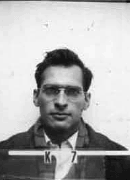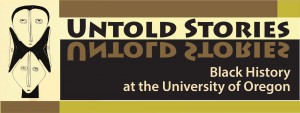Progress With Limits: President Olum’s Quest for Change
This is the ninth of a series of blog posts highlighting the ongoing work of the Documenting UO History Project within the University Archives. A major part of this project is researching and documenting the often untold and hidden histories of the university’s diverse and underrepresented communities. This year our focus will continue to highlight Black history on campus, specifically Black student activism from the 1960s to present. Prior posts can be seen here.
The Governor — and others — have complained that President Olum can’ t have it both ways — continue to assert that the University of Oregon is of the quality of some of the best public universities in the United States and argue at the same time that faculty salaries at the University of Oregon are abysmally low compared with other institutions, and that this makes it extremely difficult to compete in the hiring of the best young faculty and in retaining our leading senior faculty against very large offers from various universities. Now, the truth is that it really is both ways. Our salaries are terribly, dangerously low and yet we are surely among the best 20 public universities in the United States and, in a number of areas, significantly better even than that. -President Olum, State of the university Address, 1987

Paul Olum stepped into the role of university president at Oregon with decades of academic experience. Having just served as provost at the University of Oregon, Olum had been groomed to take over for President Boyd (see previous post on Boyd). Olum started his illustrious academic career in mathematics, even working on the Manhattan Project at one point. He earned his bachelors in physics from Princeton in 1940, an M.A in physics from Princeton in 1942, and a PhD in mathematics from Harvard in 1947. Olum later served as a very popular and distinguished professor of mathematics at Cornell, and had a short stint at the University of Texas before beginning his tenure at Oregon.
Olum quickly developed a positive repoire with both students and staff. Politically progressive, Olum publically called for nuclear disarmament and fought to make the University of Oregon more inclusive for all students. Although Olum’s tenure avoided the contention that filled the 1960s and 1970s, Olum faced recurring budget restraints and struggled to recruit more minority students to the Eugene campus.


